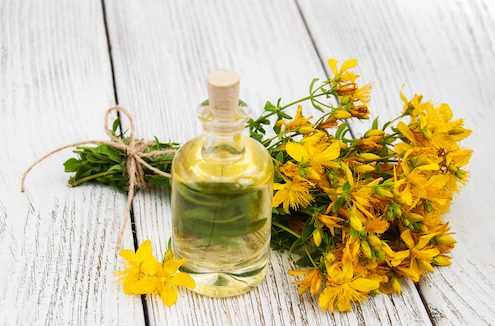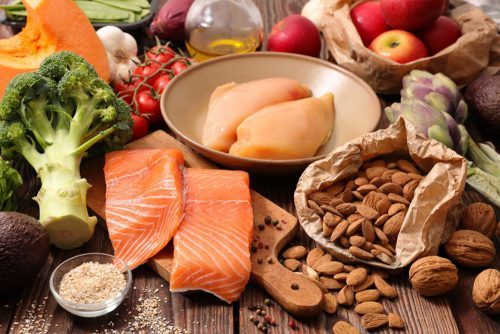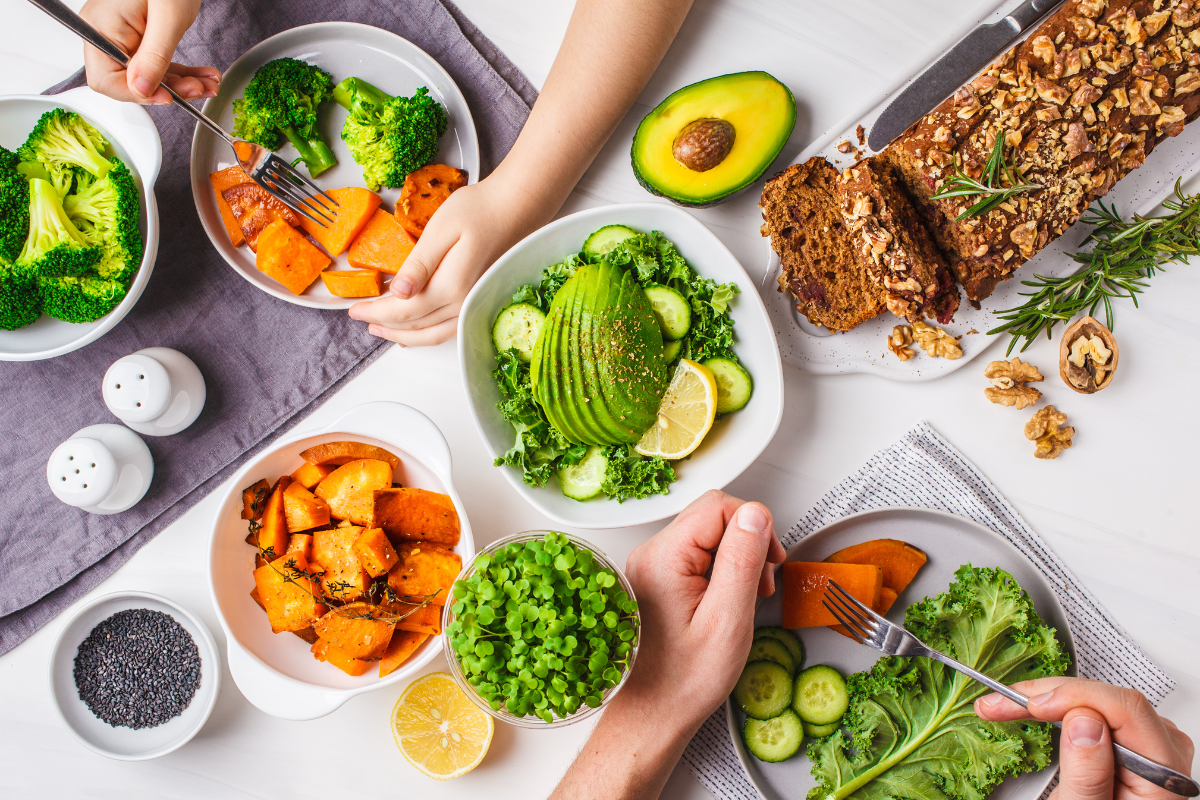
When it comes to happy thoughts, there is a molecule in our bodies that plays a major role and that is called serotonin. Serotonin is a neurotransmitter (a chemical messenger) that enables communication between nerve cells in the brain. It is involved in mood, sleep and also appetite. Low levels of serotonin in the brain are linked to depression.
Serotonin is derived from the amino acid l-tryptophan and is mainly produced in the gut (find out more about this). Natural ways to increase serotonin production in the body include exercise, exposure to sunlight, and diet (a diet rich in l-tryptophan-containing foods such as eggs, cheese, turkey, fish, oats, nuts and seeds). However, in some cases an extra boost may be needed and supplementation could be the answer. Two major supplements that can modulate serotonin levels, and therefore lift your mood, are l-tryptophan and St John’s wort.
L-tryptophan
L-tryptophan is an essential amino acid. This means the body cannot make it and it has to be obtained from food or supplements. It is also a precursor of serotonin. Low mood and sleep disorders can be related to low amounts of l-tryptophan in the body. Clinical trials have shown that supplementation with l-tryptophan is effective in patients described as “low serotonin producers” and may help to reduce symptoms of low mood and anxiety. L-tryptophan is known to also have a role in cognition, helping with memory.
There is also an intermediate form of l-tryptophan called 5-HTP (l-tryptophan is first converted to 5-HTP which is then further converted to serotonin) that can be supplemented. 5-HTP can have stronger and faster effects compared to l-tryptophan but some reports suggest that your body may develop tolerance more easily. Both l-tryptophan and 5-HTP are usually well tolerated, although drowsiness and nausea after ingestion can occur in some cases. As with any supplements that can increase serotonin levels, be aware of any interaction with anti-depressants or other medication you may be taking.
St John’s wort
St John’s wort (also known as Hypericum perforatum) is a yellow-flowered herb with anti-depressant and anxiolytic properties. It has to be one of the most well known herbs in the treatment of mental health conditions, being widely prescribed in Europe. Data from several clinical trials has shown that St John’s wort extracts are more effective than placebo for the treatment of mild to moderate depression including seasonal affective disorder (SAD). Additionally, it is as effective as standard antidepressants with fewer side effects.
Its main active ingredients are believed to be hypericin and hyperforin and its mode of action similar to that of selective serotonin reuptake inhibitors (SSRIs). SSRIs work by blocking the reabsorption of serotonin in the brain making it more available. Similarly, St John’s wort seems to have a clear inhibitory effect on the reabsorption not only of serotonin but also on another important mood neurotransmitter, gamma-aminobutyric acid (GABA).
Although St John’s wort can be an effective and well tolerated alternative to standard antidepressants in mild to moderate depression it is not suitable in the case of serious depression. There are also some precautions to keep in mind: this herb is not advisable in cases of known photosensitivity, it can interact with certain prescribed medicines including oral contraceptives and hormone therapy. Caution should also be taken if you are already taking orthodox medication for the treatment of depression such as SSRIs. If you are considering taking St John’s wort, do not self-medicate and consult a qualified herbalist who can make an individual assessment.




